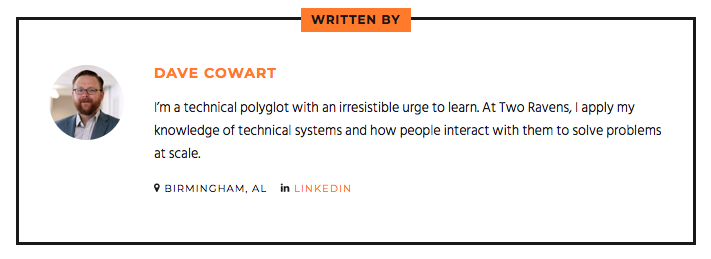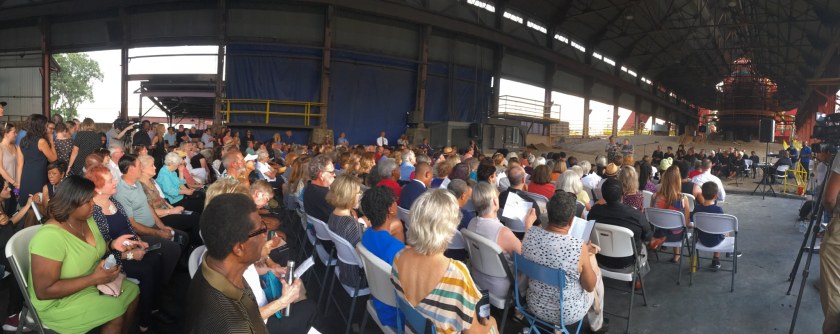
Lunch & Learn |
Thank you to everyone who joined us last month for our Community Engagement Lunch & Learn with the Jefferson County Memorial Project.
We had two very dynamic speakers – Abigail Schneider and Myeisha Hutchinson – visit us to discuss the JCMP and what the organization means not only to the city of Birmingham, but to the whole state of Alabama. We also learned how the JCMP is connected to the Equal Justice Initiative in Montgomery.
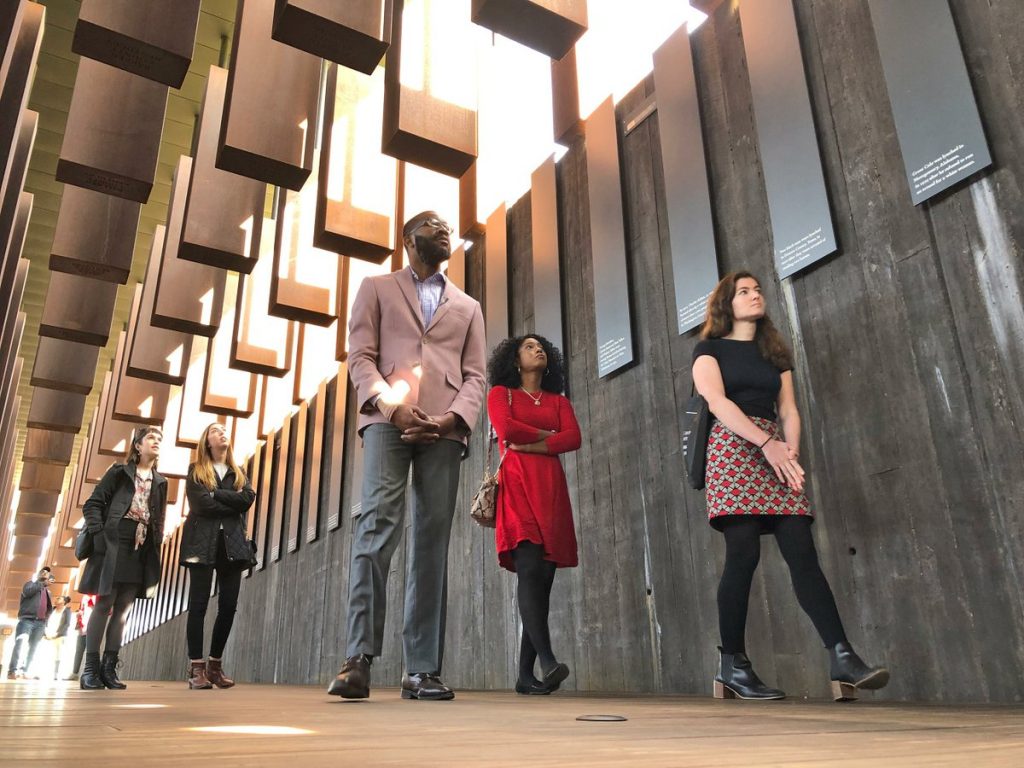
photo by Iron City Ink
Abigail and Myeisha spoke at Forge on September 11 – just two days after the JCMP dedicated their first historical marker at Sloss Furnaces National Historic Landmark. The marker honors the lives of Jake McKenzie and Tom Redmond, two black men lynched at mines owned by the Sloss-Sheffield Iron and Steel Company. The event at will reflect on the lives of Mr. Redmond and Mr. McKenzie and the system of convict leasing that continued to abuse and exploit black residents long after the abolition of slavery.

Historical Marker dedication at Sloss Furnaces- photo by Bham Now
The JCMP is a grassroots coalition whose goal is to memorialize the victims of racial terror violence and expand our county’s understanding of past and present issues of racial injustice.
The organization is composed of over 40 community partners and a multi-racial, multi-faith, multi-sector, and multi-generational group of committed volunteers. The four goals of JCMP are to:
-
Research Jefferson County’s 30 documented victims and their descendants through our JCMP College Fellow Program.
-
Educate the public on the importance of this history through events such as art exhibits, school curriculum, and JCMP trainings.
-
Place historical markers at lynching sites and retrieve our monument from the National Memorial for Peace and Justice.
-
Advocate for reform where racial injustice still exists today.
Through these four steps the JCMP will work with Alabamians to confront our history and reconcile for our future.
Through the work of JCMP, Birmingham is also re-learning some important moments in our city’s history. For example, down the street from Forge is Linn Park (known as Central Park at the time) – the site where a white mob lynched Lewis Houston on November 24, 1883. Mr. Houston was the first of the 30 documented lynchings in Jefferson County.
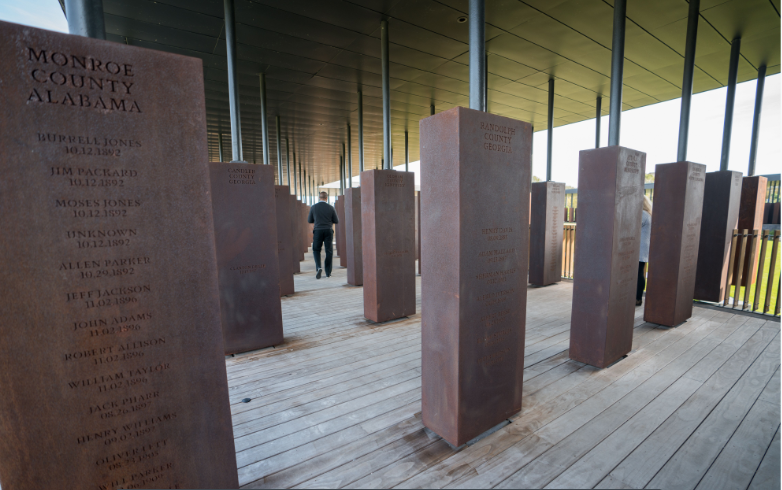
photo by Birmingham Times
Abigail Schneider is the director of the Jefferson County Memorial Project (JCMP). She graduated from Yale University with a double-major in Philosophy and American History. Schneider wrote her thesis on Illinois lynchings to push back on the idea that racial violence is only a “southern issue.” As part of her research, she helped facilitate commemoration ceremonies for these forgotten events. She moved to Birmingham through Venture For America, where she worked on financial literacy tools at the startup Azlo. Through JCMP, she wants to continue her work in lynching memory and reconciliation. Historically Birmingham has been at the forefront of activism around racial injustice. With JCMP, Birmingham can yet again be a national leader in this discussion.
Myeisha Hutchinson, Jefferson County Outreach Manager for Congresswoman Terri Sewell, oversees the Office’s intergovernmental and external affairs. A lifelong resident of Woodlawn, her training in community organizing has come from a range of local and national organizations including the Highlander Research and Education Center, Congressional Black Caucus Political Boot Camp, Leadership Birmingham, and Leadership Alabama’s Alabama Leadership Initiative.
You can also learn more at JCMP’s recently launched blog, Liberated Voices.
The Community Engagement Lunch & Learn series at Forge is sponsored by Red Thread Consulting. Follow Forge on Facebook to see all of future events that are free and open to the public!
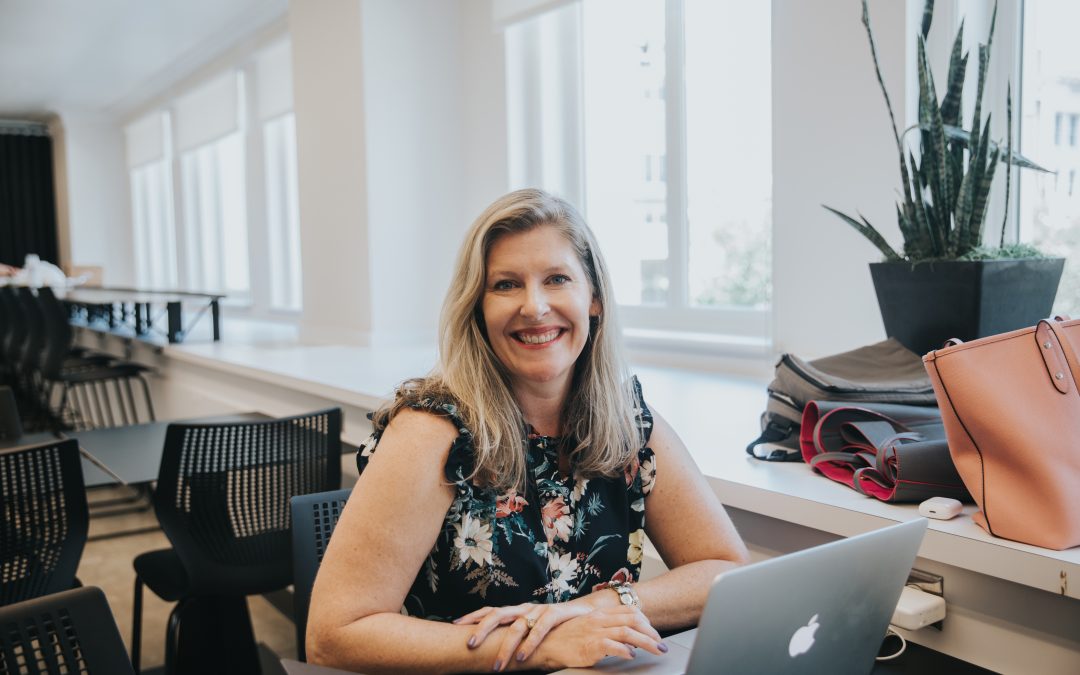
Member Spotlight |
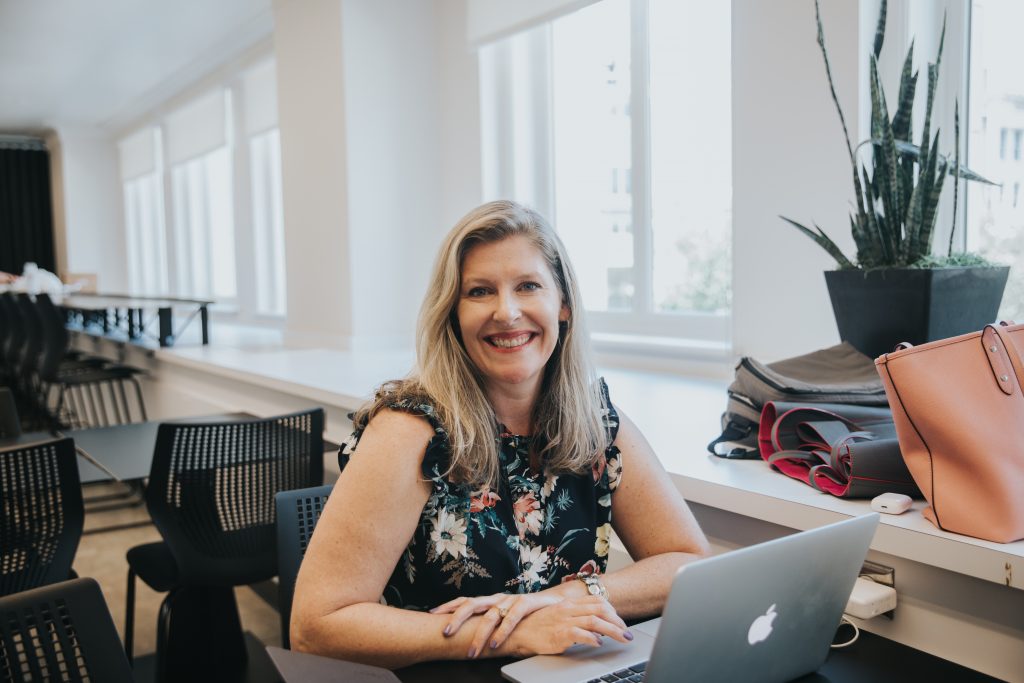
Elisa Hawkins has over twenty successful years and extensive knowledge in business to business sales, sales leadership and account management. She recently founded Sales Shyft and began working from Forge! Sales Shyft provides comprehensive sales training and coaching for organizations, teams, and individuals. We asked Elisa a few questions about her journey building her new company!
What empowered you to start Sales Shyft?
I have been in B2B sales and sales leadership for over twenty years and saw such a need for small to mid-size businesses in sales training and development. They do not have the budget that a Fortune 500 company has for sales enablement and I can bring my experience in working with and for Fortune 500 companies to their teams. It is also my mission to change the perception customers have of sales professionals. This can only be done by shifting sales professionals focus from their product and service to their customers business, solving issues and becoming a trusted business partner, not just another vendor, another sales person.
Where do you see Sales Shyft going in the next 5 years?
Sales Shyft will be serving businesses and individuals across the country with a digital and virtual platform that will accompany live training and development. We will be the leader in humanizing the sales process.
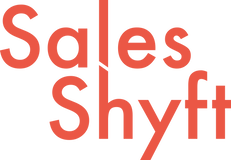
Talk to me a little bit about what your day to day looks like.
Oh my! Every day is different, which is what I love about entrepreneurship. Never a boring moment! I start my day with a nice walk while the coffee is brewing and think through my plans for the day. I spend a lot of time developing content for our training programs, content for social media and expanding my website. I also dedicate a significant portion of time toward prospecting for new clients.
What is your favorite aspect of the sales industry?
Building relationships and trusted business partnerships with my customers is the best part of a career in sales. I love people, so getting to know the human aspect of the businesses I serve is so rewarding. I am also a fierce competitor so beating the competition and winning never gets old.
Do you find having a space like Forge has been beneficial to growing your business?
Forge has been amazing for the development of my business. I am able to network with fellow business owners and Kim and Kelsey have been fantastic in helping to market Sales Shyft through Lunch and Learns, showcasing us through blogs just like this and promoting our social media posts. Owning a business is challenging and Forge has helped me to not feel so alone in the journey of building my business.
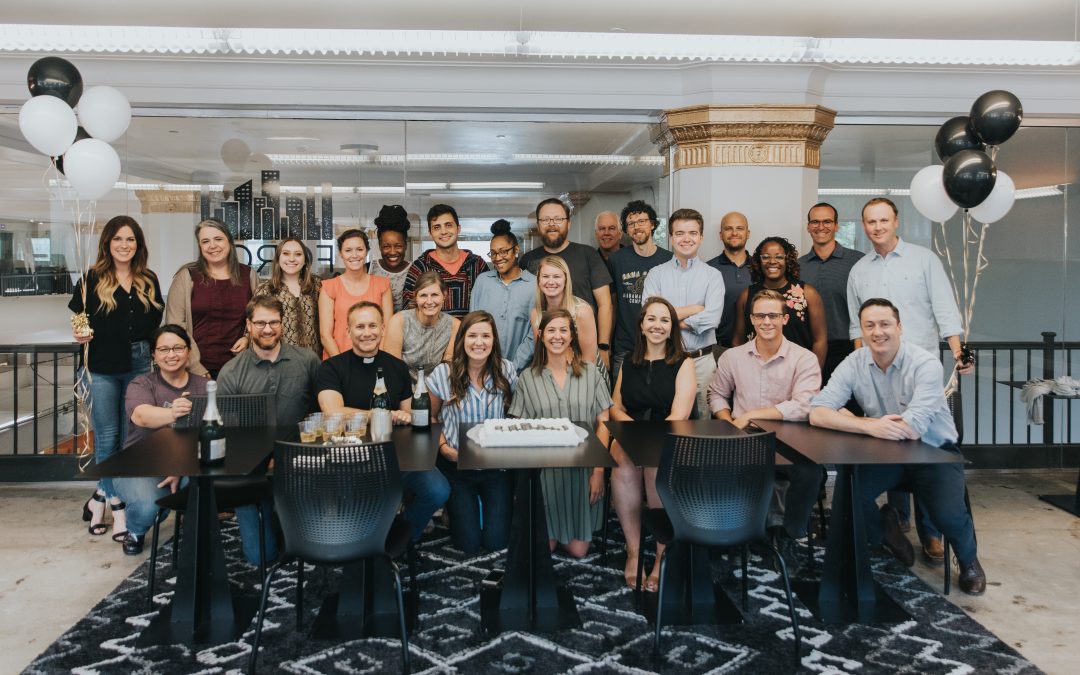
Forge News and Updates |
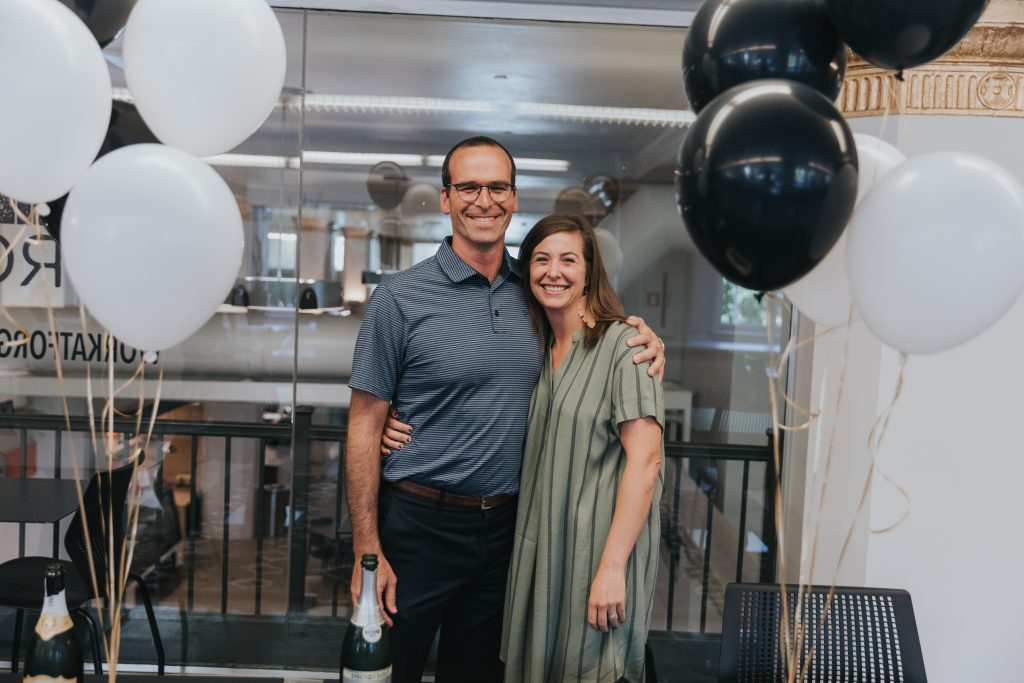
We make a big deal out of celebrating birthdays at our house. In our family, we celebrate not just the day but the whole month. During your birthday month you get a lot of very special privileges: sitting in the favorite seat at the dinner table, first to get dessert, random singing of happy birthday… We make an extra effort to make the birthday boy or girl feel loved and appreciated as we reflect on the very special role they play in our family. Birthdays always lead me to reflect on just how quickly times passes and that I am thankful for each and every day with my family.
As we come to the end of Forge’s birthday month, I have gone through a lot of the same reflections and thankfulness of this journey that we are on together. I underestimated both the difficulty of opening a business and growing it to a thriving community, as well as the joy it brings. I love seeing Forge filled with people who have a place that they are proud to work as they are drawn out of isolation at home and now have thriving businesses because they are surrounded by people who push themselves to grow. It is truly a privilege to serve so many amazing companies every day. I am humbled and thankful for the members of Forge who choose us as their place to work.
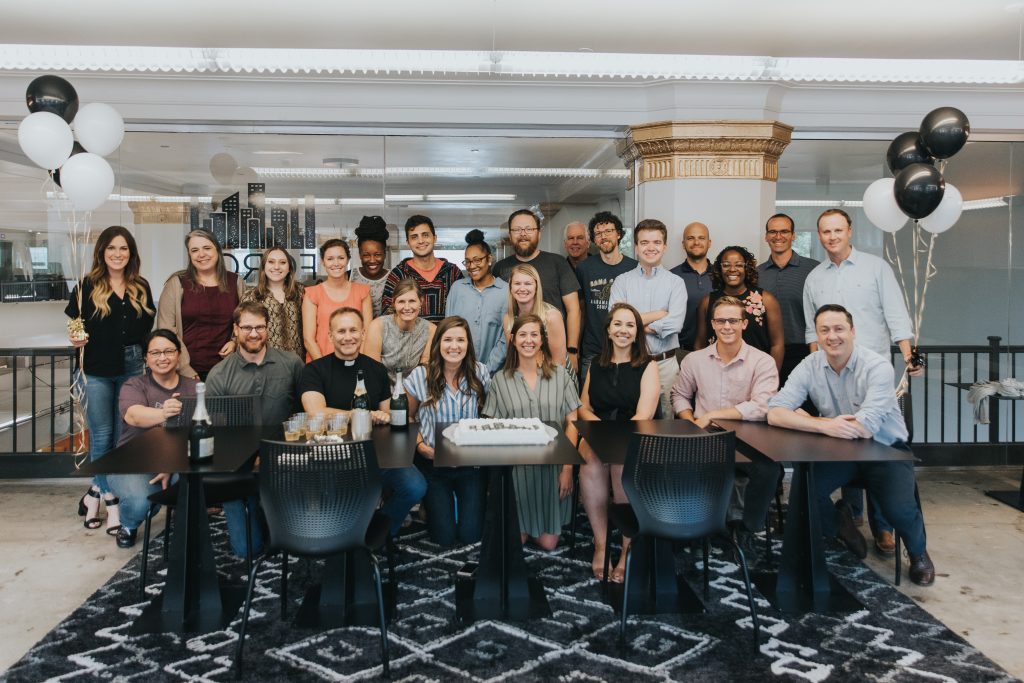
Over the past two years (and really the two years before that as I was building Forge) I have seen tremendous support from the Birmingham community. One of the magical things happening now in our Magic City is the championing of new businesses. At Forge, we love being a part of helping businesses start and grow. As a business owner I have also experienced the same support and encouragement from both our members and other business owners and leaders in Birmingham. We are part of an amazing business-building ecosystem that I do not take for granted!
I am also extremely grateful for the team at Forge who make the vision a reality. Over the past two years we have had one full time staff person (we all love Kelsey!), several part-time staff members, and four interns. Each and every team member tirelessly serves the members of Forge. Because I underestimated how much I needed to grow as leader before I opened Forge I am that much more thankful for the team that has walked this journey with me, patiently helped me become a better leader and ultimately made Forge a special place for our members.
Birthdays are special and they are worth celebrating. We are thankful to be celebrating with you!

Forge News and Updates |
Bham Now recently featured Forge member Retha Nichole in this article. Retha is a small business coach- read more about how she got where she is today!
Have you ever thought about starting your own business, but realized maybe the million reasons why it would be extremely difficult, and then just given up? Or are you a small business owner who just needs a little extra push here and some help with administrative tasks there? Enter Retha Nichole.

If you’re wondering, “There is one person who can do all of that for me?,” the answer is yes. Nichole has spent her life working hard to get to where she is today, and she wants to work with you to make your dreams and goals a reality.
What Does A Small Business Coach Do?
In short, a small business coach can do or be anything that you specifically need in your small business. On a day-to-day basis, Nichole does everything from helping with administrative tasks to setting up systems for her clients, and even encouraging them and helping them really focus in on their goals. She refers to entrepreneurs as ‘visionaries’ and describes her process of working to help her visionary clients focus on the here and now so they don’t get caught up in the future.

“Daily, I coach small business entrepreneurs on how to make their business more efficient and better. What i’ve found is, it’s not necessarily that small business people don’t have the ‘business gene’ — it’s that they need someone to keep them accountable. Most small business people are visionaries, and they want to do and run and be everything. But there has to be someone in their world that says “let’s stay focused on this, because this is where we are.”
How Does Being A Certified Life Coach Fit In?
“The reason I started to get into life coaching is because I found that for small business people, if there are pieces of their life that aren’t right, it hurts their business.”
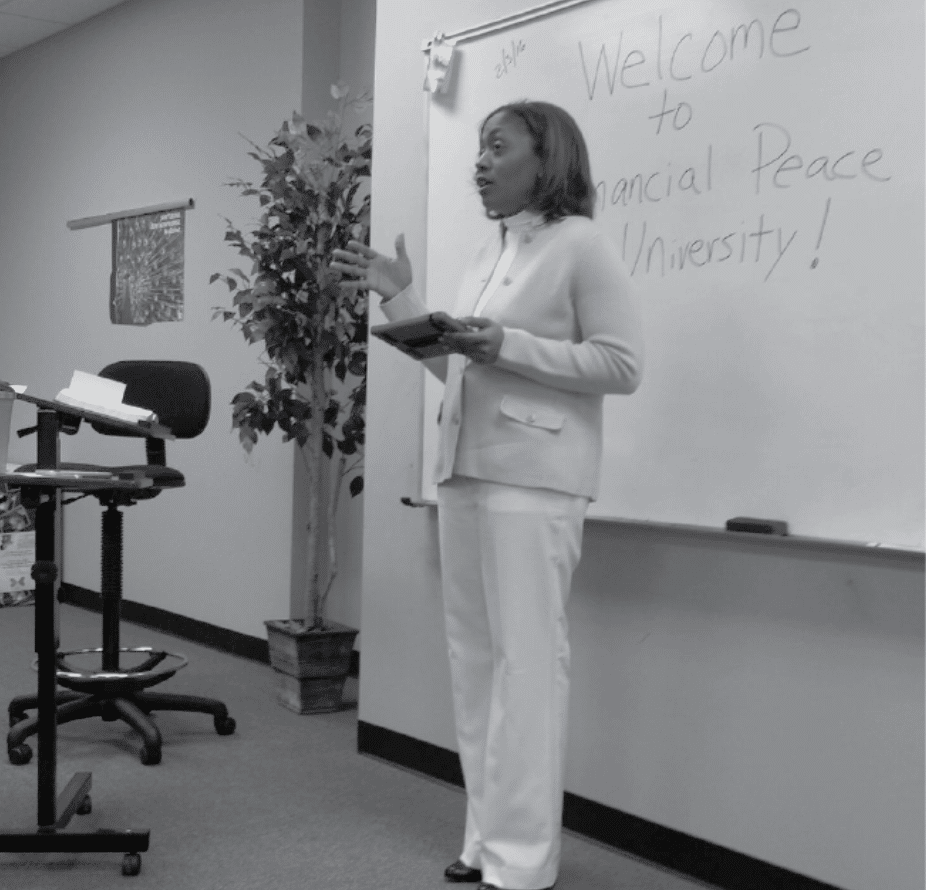
Nichole explains that for many small business owners, their business is their life. So, while we may not think of one small thing in our daily life affecting our work life, it is not the same for entrepreneurs. When something is off in their day to day life, it can greatly affect their business. However, most people do not think that way — something that Nichole is hoping to change. She works to make entrepreneurs aware of this so that they can adjust and grow in their business as they need to.
Nichole’s Background
Nichole has had a wide range of jobs. She grew up in Texas, and after college, she worked as a flight attendant so she could travel. After that, she moved to Atlanta and worked in high end real estate. She eventually began owning her own real estate and learning about entrepreneurship and business-building.
From her time in Atlanta, she was “bit by the small-business bug”, but she also had another unique talent: she loved helping people in the field of small business. (It’s evident as soon as you meet her — Nichole is one of those wonderful people who truly wants everyone to succeed.)
Next Up: Coaching
She decided to put her passion and talent for helping others in the small business field to work and she created her own business, Retha Nichole. She works with all different kinds of businesses.
Following a move to Birmingham and the unexpected passing of her husband, Nichole decided to open a bakery. However, she soon learned how much personal life can affect business, and made the difficult decision to close the bakery.
She uses this real-life experience to help her clients maneuver the tricky work-life balance that is especially difficult for entrepreneurs. Nichole has since gone through many seasons of life and is now in the process of getting her life coaching certification to be able to help people even more.
You can learn more about her personal story via her website, Instagram or Podcast! Yep, she is a busy woman.
Hear Nichole Speak
Nichole speaks at Christian women’s conferences throughout the year. Some of the topics she speaks on are:
- Finding your God-given purpose
- Pursuing everyday balance
- Finding God in trials and suffering
- Living in community
- Prioritizing abundance in Jesus
What’s So Great About Working From Forge?
Nichole has her own office space at Forge, and she loves the energy of the coworking space. In addition to the cool, modern space, Nichole shared that she loves being around others who are working hard to achieve a goal. “For entrepreneurs, we are in a world of the internet,” Nichole tells me. “So it allows you to work from home; and while I think you can be successful working from home, it takes a lot of discipline. There is something about being in a space with others that drives you and pushes you to be better. I chose to work at Forge for that exact reason.”
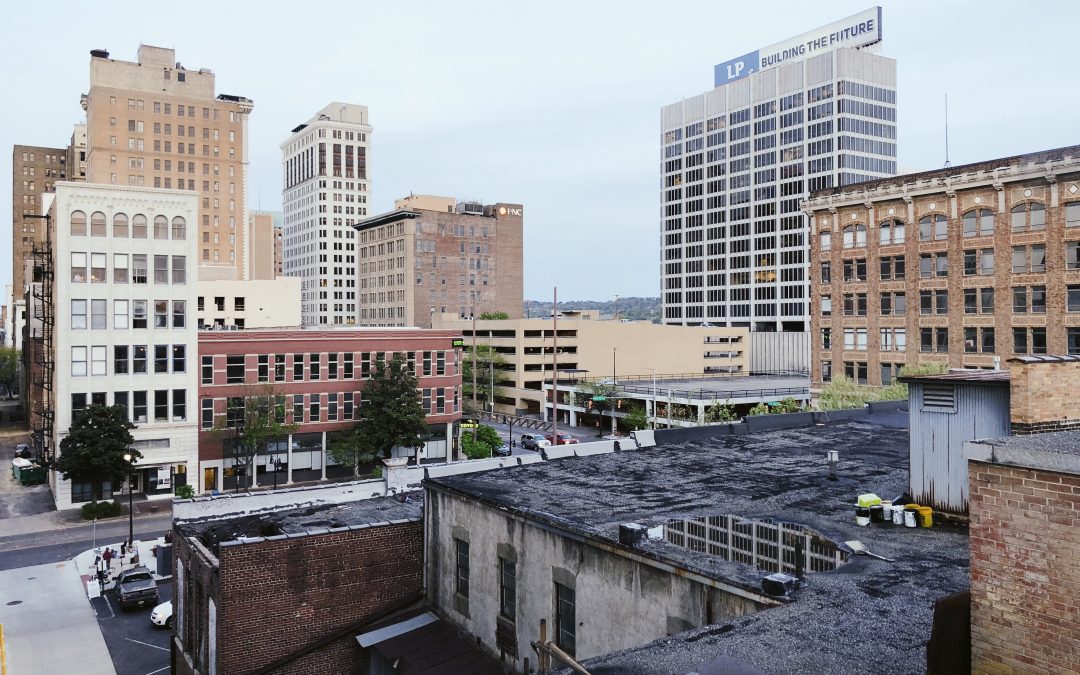
Forge News and Updates |
We loved this blog post so much that we snagged it (with their permission!) from our friends- Two Ravens. Dave Cowart wrote this one- be sure to check out the original post here!

There are plenty of articles proclaiming how great a place Birmingham has become. The food scene is world class! Shipt is showing what we’re capable of! The new mayor is going to fix everything! But nobody’s saying much about our disadvantages. Truth is, we have a lot—other cities have measurable leads in economic, educational, cultural, and societal measures. Our public image is shaded by the state as a whole. And regional cooperation is best measured under a microscope.
But don’t despair! In a bit of metaphorical judo, many of these disadvantages can actually be leveraged into advantages. One of the principles of judo is jū yoku gō o seisu, or “softness controls hardness”:
Resisting a more powerful opponent will result in your defeat, whilst adjusting to and evading your opponent’s attack will cause him to lose his balance, his power will be reduced, and you will defeat him. This can apply whatever the relative values of power, thus making it possible for weaker opponents to beat significantly stronger ones.
Instead of comparing ourselves to other cities and trying to emulate the paths they’ve taken, we should instead focus on what makes us unique and use our weaknesses as strengths. I’m not talking about finding the silver lining in a storm cloud; I mean actual, actionable changes we can make.
What are our greatest weaknesses? Size is an obvious starting point – we’re the 49th largest metropolitan area and the 104th largest city in the country. Population size isn’t everything, but it means we’re low on the list for outside investment, whether that’s attracting a corporate headquarters or a major sports team or even just niceties like the availability of same-day delivery or car-sharing. How do we use that as an advantage?
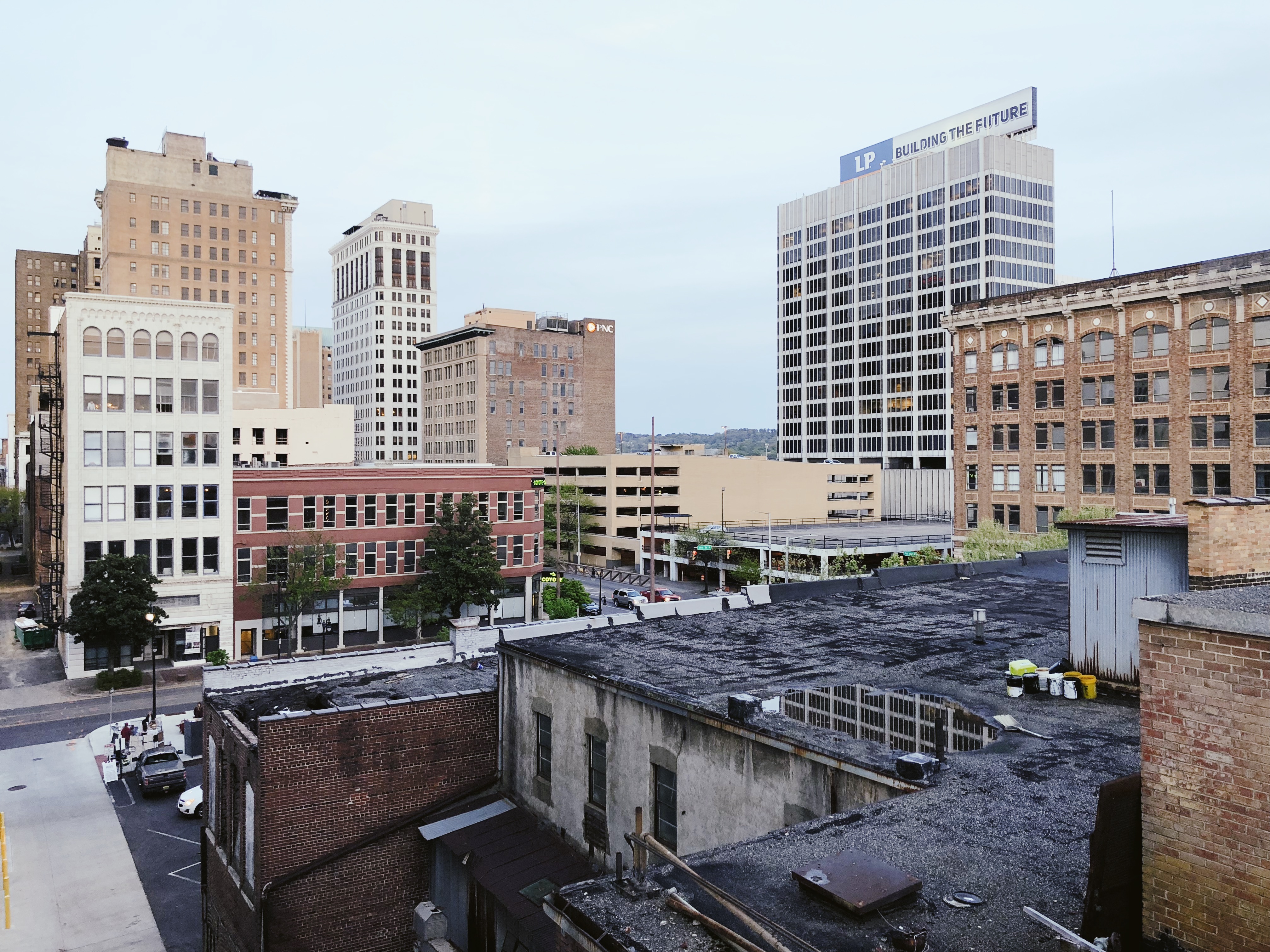
Since our city is smaller, we’re more likely to have friends in different industries. Sure, most people have lots of connections in their field, but we don’t have the density to support isolated bubbles like a financial district or a collection of tech campuses. This means that we’re more likely to be serendipitously exposed to the obstacles and breakthroughs of other industries, giving us the chance to treat our entire city like a huge Innovation Depot.
There are other advantages to being a smaller city. Cost of living is low, our worst commutes are laughable in other cities, and seeing familiar faces on the street can ward off the social isolation experienced by some people in large cities. The pace is a little slower, and people tend to be friendlier when there’s a chance you probably have a mutual friend. These factors can be crucial when recruiting against other larger population centers.
But why are we comparatively small? Growth in the metro area is slow, and it’s been getting slower for years. The city itself has actually been losing population. The good news is that we haven’t sacrificed our natural areas to develop real estate. Within a few miles of downtown, we’ve had Ruffner Mountain for decades and now we have Red Mountain Park. That doesn’t have to be the end of the story though. The same mountain that currently divides the city from its wealthiest suburbs has also shaped the city itself, both geologically and geographically, preventing sprawl in certain directions. Natural and historical areas in close proximity to downtown are still largely unspoiled and ready for enjoyment and preservation.
Industries that were previously a leading cause of the metro area’s growth are now declining or outdated. The steel industry has moved on, the financial industry has consolidated elsewhere, and we’re now home to only one Fortune 500 company. Those industries were the fuel that powered our economy and gave us the nickname “The Magic City,” and they occupied some of the prime real estate in town. They also employed many of the people that shopped and ate in the heart of downtown. Now that the furnaces and mills have closed and the shops and restaurants have moved away, all that land and empty real estate are available. The McWane Center and the Pizitz have revitalized empty department stores, Sloss Furnace is now a museum and the home to a successful music festival, Back Forty just opened a brewery/restaurant at the old Sloss Docks, and Amazon is building a fulfillment center on former U.S. Steel land. Just this week, DC Blox announced that they’re building a flagship data center at a closed steel mill a few blocks from UAB. It’s hard to imagine many other major urban universities having that kind of available land nearby. It’s important to focus on developing these previously-abandoned areas in a way that weaves young and innovative companies throughout the city.
Our airport is substantially smaller than others in the southeast. Ignoring the behemoth to the east, it still sees just a fraction of the boardings as Nashville, New Orleans, and Memphis – cities whose metro areas aren’t that much bigger than ours.
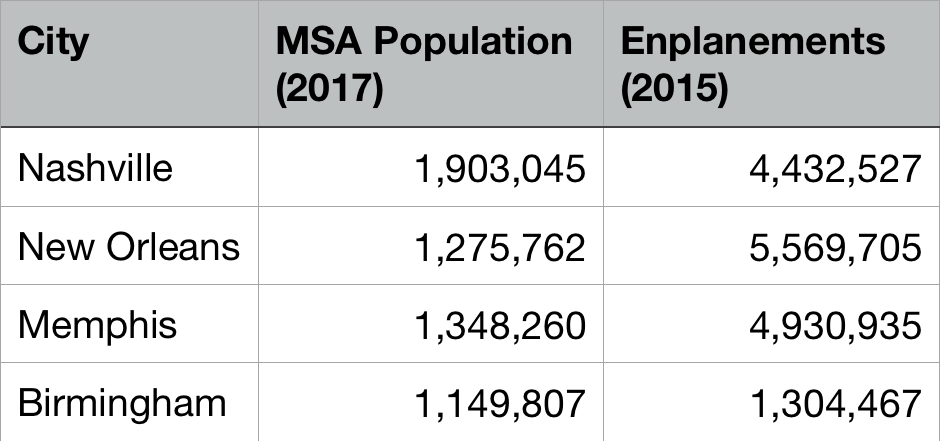
Population vs. Enplanements (commercial boardings) by City
Tourism is a strong industry in those cities, but there’s clearly a lot of opportunity for growth. The good news is that people there who are looking at the future, realizing they have to innovate, and are already making plans. Enjoy the short security lines and easy parking while it’s not too busy.
Nobody on the outside is paying attention and expectations are low. It’s time to work together to leverage our disadvantages while still doing things our own way.
